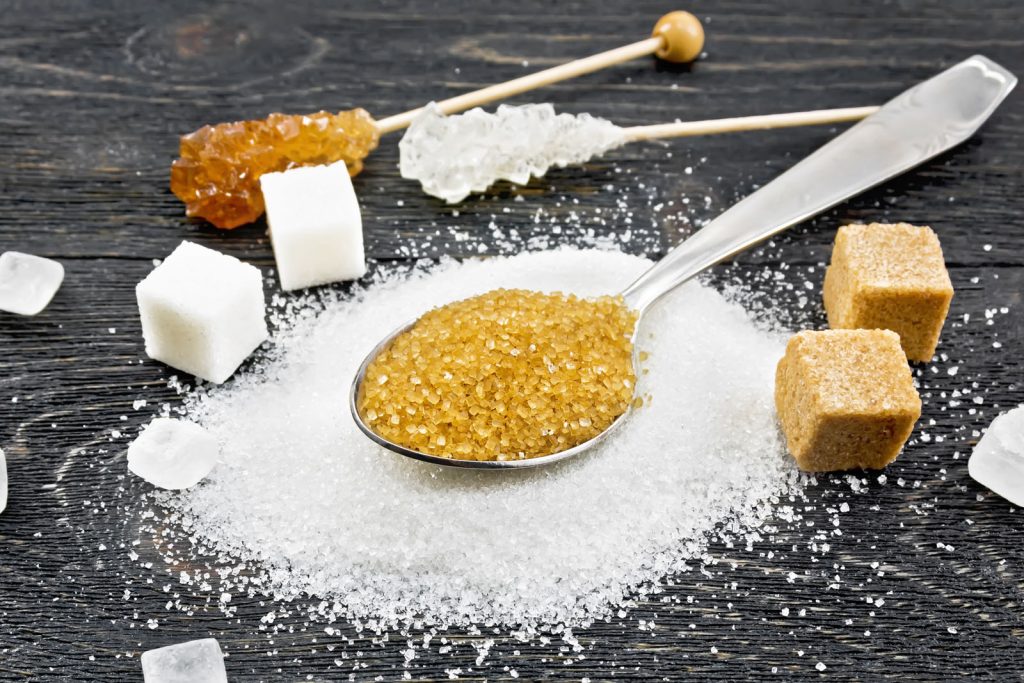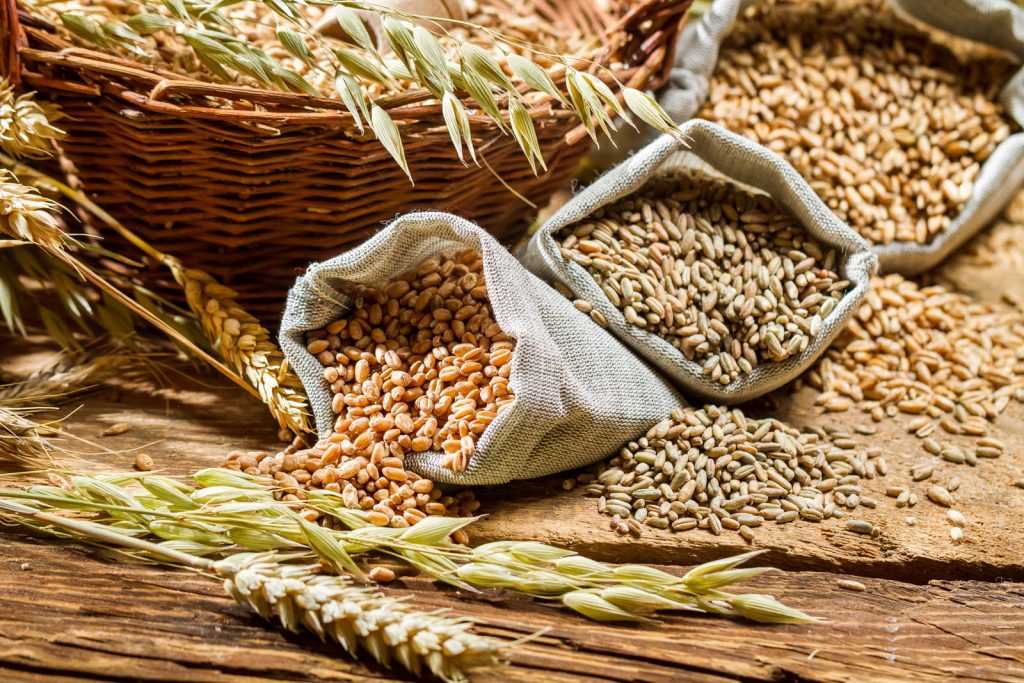Understand how functional and natural medicine can help with effective and evidence-based solutions to reduce blood sugar for improved health and energy.
How Can I Lower My Blood Sugar Naturally?
Key Takeaways
- Blood sugar balance is crucial for overall health, reducing the risk of diabetes, heart disease, and other metabolic conditions.
- Diet plays a central role, with low-GI foods, intermittent fasting, and ketogenic diets offering benefits for glucose control.
- Nutrients and herbs like inositol, psyllium, gymnema, fenugreek, and bitter melon can support healthy blood sugar levels.
- Exercise improves insulin sensitivity, with regular physical activity helping to lower glucose levels for hours after movement.
- Stress & sleep impact blood sugar- by increasing insulin resistance and disrupting metabolic function
- A functional medicine approach considers all aspects of lifestyle, including diet, stress, movement, and targeted supplementation to manage blood sugar effectively.
Introduction
Keeping blood sugar levels within a healthy range is one of the most powerful ways to support long-term health. Consistently high blood sugar can contribute to serious conditions like insulin resistance, type 2 diabetes, and cardiovascular disease. But beyond the numbers, blood sugar imbalances can impact energy, mood, weight, and even hormonal health- especially in men.
Many people turn to medications to manage glucose levels, but there are also highly effective natural strategies. Through diet, lifestyle changes, and targeted supplements, it’s possible to improve insulin sensitivity, stabilise blood sugar, and support overall metabolic health. In this article, I’ll break down the best evidence-based ways to naturally lower blood sugar and how I approach this with my patients.
How Does Blood Sugar Work?
Glucose is the main energy source for your body’s cells. When you eat carbohydrates, your body breaks them down into glucose which then enters your bloodstream. When that happens your blood sugar levels rise, signalling the pancreas to release insulin. Insulin is a hormone that enables glucose get into your cells. This provides the cells with energy, and reduces the sugar levels in the blood surrounding your cells
If these mechanism of insulin break down, your blood sugar will remain high which has serious health consequences over time. High blood sugar can lead to heart disease, hypertension, stroke, kidney disease, nerve damage, and vision issues.

How Does High Blood Sugar Affect Men?
Men with diabetes have increased risk of other health issues. For example, men with type 2 diabetes are twice as likely to suffer from low testosterone. High blood sugar can also lead to erectile dysfunction. When glucose levels go up, they damage blood vessels and nerves that are important for having and keeping an erection. It’s important to manage blood sugar levels to improve your overall health
How Can I Reduce My Blood Sugar With Functional Medicine?
Functional medicine for blood sugar management involves us spending a lot more time with our patients than doctors have the luxury of. Prediabetes and diabetes mellitus are chronic lifestyle diseases which require time and support to change.
Early detection of blood sugar problems is very important to avoid moving to prediabetes or type 2 diabetes. Tests that are run by GP’s in Australia often misses changes in the early stages. Monitoring blood glucose regularly is key, especially for men with certain risk factors. You can read about some more specialised testing for blood sugar imbalances I run here.
For treatment, we might suggest certain diet changes, lifestyle adjustments, stress management methods, or supplements to support glucose metabolism and pancreatic function, or to fix any nutritional gaps.
Best Diet For High Blood Sugar
Diet is very important for controlling high blood sugar levels. Everything we eat changes our glucose levels and I often get asked what the best eating plan for diabetes is!
The glycemic index (GI) can show how fast a food raises your blood sugar. Low-GI foods, like whole grains, legumes, and non-starchy vegetables, are digested slower and cause a steady rise in blood sugar. On the other hand, high-GI foods, such as sugary drinks and refined grains, can make blood sugar rise quickly. And I have found in clinic that everyone’s bodies respond differently to all types of foods! Some people are more sensitive than others.

Can Intermittent Fasting Lower Blood Sugar?
A key advantage of intermittent fasting (IF) lies in its ability to enhance insulin sensitivity and promote better blood sugar regulation. By limiting eating windows, IF reduces the frequency of insulin spikes, allowing the body to utilise stored glucose more effectively. This can lead to weight loss, improved glycemic control, and reduced risk of type 2 diabetes.
Risks of Intermittent Fasting
While IF can be beneficial, it also carries potential risks, particularly for individuals with certain health conditions. Prolonged fasting periods may lead to hypoglycemia, especially in those with pre-existing conditions like diabetes who are on glucose-lowering medications. Additionally, fasting can induce stress responses in the body, resulting in increased cortisol levels, which paradoxically elevates blood sugar. Furthermore, inconsistent eating patterns may disrupt the body’s natural circadian rhythms, potentially leading to impaired glucose tolerance and metabolic imbalance.
Understanding the balance between these advantages and risks is crucial for anyone considering this dietary approach, especially those with underlying health conditions. A qualified nutritionist can help you navigate the best way forward for you.
The Ketogenic Diet: Pros and Cons for Blood Sugar Control
The ketogenic diet is very low carb and high fat. It has possible benefits for weight loss and managing blood sugar levels. When you reduce carbs significantly, your body goes into a state called ketosis and you start to use fat derivatives ketones as energy instead of glucose. This change can help with blood sugar control because it reduces blood sugar spikes, lowers the need for insulin and reduces the amount of glucose the liver makes.
Is The Keto Diet Safe?
Many studies show that the ketogenic diet might help improve insulin sensitivity and lower blood sugar levels. While the ketogenic diet can be helpful for some people, there are important risks to know. This is particularly true if you have certain health conditions. For those with high blood pressure, the diet could raise blood pressure in the short term.
The diet’s high fat content also raises concerns about cholesterol levels. Some studies show it can improve cholesterol, but others say it might increase LDL (the “bad” cholesterol). Cholesterol metabolism isn’t the same for everyone, you can read more about who is susceptible to high cholesterol diets in my article here. Other risks of the keto diet include not getting enough nutrients, constipation and it’s associated health risks, and a higher chance of kidney stones- especially if you have kidney disease.
So even though the ketogenic diet may help control blood sugar, it’s not for everyone. It’s very important to talk to a nutritionist before making major changes to your diet, especially if you have health conditions or are taking any medications.

How Can I Lower My Blood Sugar? Key Nutrients
In addition to eating a balanced diet and having a healthy lifestyle, some nutrients may help with blood sugar control. I sometimes add these supplements into my patients regimes to support healthy glucose levels.
The Benefits of Inositol for Blood Sugar Control
Inositol is a natural compound found in foods such as beans, nuts, and fruits. Research shows that inositol helps with insulin signalling and improves insulin sensitivity. This means the body can use glucose more effectively, and insulin and blood glucose levels drop. I use inositol to support my patients with insulin resistance.
How Psyllium Aids in Blood Sugar Management
Another good option is psyllium, which is a type of soluble fibre. Psyllium can play a role in blood sugar control and works by absorbing water in the digestive system and creating a gel-like substance.
This gel slows down how fast carbohydrates are digested and absorbed. This means blood sugar levels rise more slowly after meals. By slowing down these post-prandial spikes in blood glucose, psyllium can help people manage their blood sugar better. Additionally, psyllium may help with weight loss. It can make you feel full, which may lead you to eat fewer calories.
Natural Ways to Lower Blood Sugar: The Key Herbs
Gymnema, fenugreek, and bitter melon are some herbs that are becoming well-known for helping lower blood sugar. Research shows that these herbs are very effective, but it is crucial to talk to a healthcare professional before using supplements as they can interact with medications and cause side effects.
Gymnema: An Ancient Remedy
Gymnema sylvestre has become popular for its possible role in controlling blood sugar in different ways.
Gymnema can reduce sugar cravings, which may lead to eating less sugar. Studies also show that Gymnema can reduce how much sugar we absorb, AND stimulate the growth of the beta cells in the pancreas which make insulin! Adding Gymnema to a complete plan for blood sugar control can support blood sugar control.
Fenugreek: A Dual-Purpose Herb for Blood Sugar and Digestion
Fenugreek comes from the seeds of the Trigonella foenum-graecum plant, and can help support healthy glucose levels in various ways.
Fenugreek seeds contain soluble fiber. This fiber slows down how fast our body digests and absorbs carbohydrates. As a result, blood glucose levels rise more slowly after meals. The fiber, along with fenugreek’s ability to stimulate insulin release and improve insulin sensitivity, makes it useful for weight loss and blood sugar management.

Bitter Melon: Nature's Answer to Elevated Blood Glucose
Bitter melon, or Momordica charantia, is a fruit with a strong bitter taste. Bitter melon contains substances that act like insulin, which helps the cells take in glucose.
Studies show that bitter melon suppresses glucagon, increases insulin sensitivity, and supports the pancreas in releasing insulin. This leads to lower blood sugar levels.
However, it is important to note that bitter melon has been known to have an additive effect to diabetes medications. Please only use under professional guidance.
Stress Management Techniques That Make a Difference
Chronic stress impacts your blood sugar levels. When we are stressed, our bodies release hormones like cortisol. This hormone disrupts how insulin works and raises blood glucose levels. This is why I highlight the importance of managing stress and mental health. Chronic stress can also cause issues like weight gain & sleep disturbances.
Using relaxation techniques can help. Studies show deep breathing, meditation, or yoga can lower cortisol levels and improve diabetes markers. Spending time doing activities you enjoy, like listening to music, being in nature, or taking up hobbies, can also give you a break from daily stress.
The Importance of Sleep in Blood Sugar Regulation
Sleep is just as important as diet and exercise for keeping healthy blood glucose levels. Not getting enough sleep or having poor sleep can disturb our hormones and lead to insulin resistance and higher glucose levels.
Research shows correlations between poor sleep and increased risk of type 2 diabetes and heart disease. Aim for 7-9 hours of good sleep each night to help your body handle stress and keep hormones and sugars balanced.
Implementing Long-term Dietary Changes
Clever marketing promises quick fixes with a single supplement or a fad diet- unfortunately, they usually do not work long-term
There are a lot of issues with these fads- the first being that elevated blood sugar is a chronic lifestyle disease that took years to develop- and will take time and changes to repair and reverse. Fad diets often require cutting out whole food groups or eating very few calories- neither of which are sustainable. Strict diets can cause nutrient deficiencies, gaining increased weight back, and unhealthy relationships with food.
A consistently healthy diet, getting regular physical activity, managing stress, and getting enough sleep is what lowering your blood sugar levels really requires.
Working with a nutritionist can coach you through these changes, and provide personal advice, support and accountability to keep you on track towards your health goals. Besides meal planning, nutrition coaches can teach you about healthy eating habits and portion sizes. You can also learn to have a good relationship with food, deal with social eating situations, and tackle challenges with you when they come up.
Conclusion
Balancing blood sugar is not just about avoiding diabetes- it’s about optimising your health, energy, and long term vitality. The right dietary choices, strategic fasting, movement, targeted nutrients, and stress management can all help regulate glucose levels naturally. However, there’s no one-size-fits-all solution. Everyone’s body responds differently, and personalized guidance can make all the difference.
If you’re looking to take control of your blood sugar naturally, consider working with a qualified health professional to create a plan tailored to your individual needs. Small, consistent changes can lead to big improvements in your metabolic health and overall well-being.
Frequently Asked Questions
How Does Exercise Influence Blood Sugar Levels?
Regular exercise can support your muscles in utilising blood glucose better. When you are physically active, it boosts insulin sensitivity. Regular exercise has other health benefits- it promotes weight loss, which can improve insulin sensitivity further, and lower blood glucose levels.
Can Diet Alone Help Control Diabetes?
A healthy eating plan is important, but it is not the only solution for blood sugar control. This plan should focus on portion sizes and include low GI foods. You should also eat a lot of non-starchy vegetables, healthy fats, and lean proteins.
Why Is Individualized Treatment Important in Managing Blood Sugar?
Individualized treatment is important in diabetes management. Many factors can affect blood sugar responses. These include genetics, lifestyle, and health conditions. A nutritionist can provide tailored strategies and ongoing support to help patients achieve a healthy weight and better outcomes.
What Can I Do If I Am Pre Diabetic?
Managing blood sugar naturally takes a few key steps. You can read my article here about how I manage pre diabetes in our clinic.












